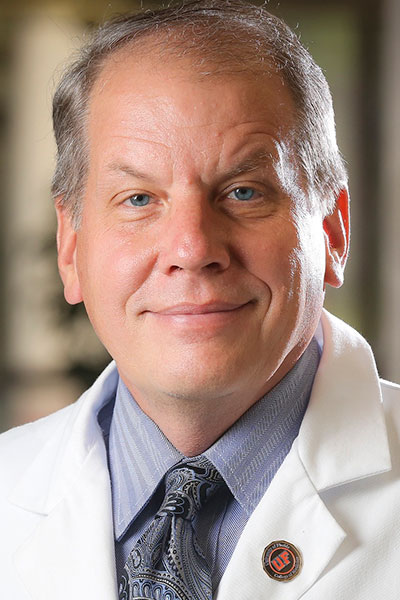
The educational program of the 85th Scientific Sessions of the American Diabetes Association® (ADA) reflects the multidisciplinary approach to disease management that has developed throughout the global diabetes care community.
“The program is, by design, quite diverse, ranging from basic science to clinical medicine, and everything in between. It would be hard to find an area in diabetes that is not represented,” said Scientific Sessions Meeting Planning Committee Chair Mark A. Atkinson, PhD. “From pregnancy to behavioral medicine, exercise, complications, stem cells, obesity, and technology—it’s all there. At the end of the day, our goal was to keep the focus on patients and their families—people. With that being the priority, if you want to do your best and brightest for those living with diabetes, you would attend the Scientific Sessions to hear knowledge gains regarding why the disease develops and how to provide the best diabetes management possible.”
Dr. Atkinson outlined several hot topics experts will address during the meeting’s more than 200 sessions at the McCormick Place Convention Center in Chicago on June 20–23, as well as some of specific sessions that will address these topics. To search the full educational program, including symposia, panel discussions, debates, and professional education sessions that may also address these topics, visit the Online Planner.
GLP-1 therapies
While the efficacy of glucagon-like peptide-1 (GLP-1) receptor agonists for the treatment of type 2 diabetes has been heralded for years, developments continue to emerge for these agents beyond their application in diabetes, including in reducing obesity by targeting weight management, averting neurocognitive disorders, impacting cardiovascular disease, and avoiding sleep apnea, among other benefits. Researchers are also focusing on long-term social and psychological implications of taking a GLP-1 receptor agonist.
“It’s not just the notion of identifying the benefits of these drugs anymore,” Dr. Atkinson noted. “Their use has, however, opened a series of pragmatic issues ranging from excess skin after losing weight to the social issues of when one has been obese for an extended period of life and now they are much thinner. It has a mental impact.”
Some of the sessions that address GLP-1 therapy include:
Saturday
- Emerging Non-Peptide, Small Molecule GLP-1 Receptor Agonists—Can They Become Players? at 8:00 a.m. CT
- Diabetes and Peripheral Artery Disease—Evolving Role of GLP-1 RA and New Insights from the STRIDE Trial at 1:30 p.m.
Sunday
- Unanticipated Hot Topics in GLP-1 +/- GIP RA at 1:30 p.m.
Monday
- Once-Monthly MariTide for the Treatment of Obesity in People with or without Type 2 Diabetes—A 52-Week Phase 2 Study, at 1:30 p.m. (discussion on combining GLP-1 agonism and glucose-dependent insulinotropic polypeptide (GIP) receptor antagonism)
- ADJUnct Semaglutide Treatment in Type 1 Diabetes (ADJUST-T1D) Trial Outcomes at 3:15 p.m.
Cardiovascular disease
Half or more of people with diabetes will die of cardiovascular disease, and GLP-1 therapies have multiple proven cardiac benefits. These and the dynamics of overall cardiovascular health and diabetes will be another recurring topic at the Scientific Sessions.
Continuous glucose monitors
The U.S. Food and Drug Administration (FDA) recently approved over-the-counter use of continuous glucose monitors (CGMs). A debate on Friday at 12:24 p.m., Over-the-Counter Continuous Glucose Monitoring—Data for All or a Disaster Waiting to Happen?, will explore what this could mean for the wearable technology. Experts will discuss whether by expanding access to CGMs, it puts a tool into people’s hands that they obsess over in an unhealthy way or whether it is empowers them to take disease management and prevention into their own hands in new ways.
Islet biology
Islet biology and stem cell replacement therapy is also at the forefront of the discourse about new technology advancing the basic science of diabetes and will be the topic of the Joint ADA/IPITA Symposium—Outpacing the Immune System—Sprinting towards Immune Protection for Cell Replacement Therapy on Monday at 8:00 a.m.
“We’ve come a long way from 20 years ago when there was the huge public debate about the origins of stem cells,” Dr. Atkinson said. “As a society, we grappled with the notion of utilizing fetal cells or induced pluripotent stem cells (IPSCs). Today, there is far less debate about the origins of stem cells but more on how we make stem cells into cells that could be improved therapeutics, ones that would serve to replace islets and bring a true cure for the disease.”
Personalized medicine
Speakers will share how improvements in genetics and the understanding of individual body chemistry that will enable clinicians to deliver more patient-centric and -specific therapies. On Friday at 3:45 p.m., Opening a Door to Precision Medicine—Lessons from Human Kidney Tissue in Diabetes will provide an overview of the impact of modern technology of kidneys in type 1 diabetes and outline the various subendotypes of diabetic kidney disease (DKD).
Diabetes education
Patient education is a significant component of diabetes management, and new developments in this area have a prominent place in the Scientific Sessions program year after year.
“It’s not just physicians and basic scientists who attend the ADA’s Scientific Sessions. There’s a large contingent of diabetes educators that attend and share their personal experience in developing new ways to improve health care delivery,” Dr. Atkinson said.
This year’s lineup includes experts in nutrition in sessions like Saturday’s Consensus of Controversy? Hot Topics in Nutrition 2025 at 4:30 p.m., as well as experts in the effects of exercise in sessions like Monday’s Trending Topics and Smart Solutions in Pediatric Diabetes at 3:15 p.m.
The entire conference will be presented in person with no livestreamed sessions. On-demand access to recorded presentations will be available to registered participants following the conclusion of the Scientific Sessions, from June 25–August 25. On-demand-only registration is also available.

Watch the Scientific Sessions On-Demand after the Meeting
Extend your learning on the latest advances in diabetes research, prevention, and care after the 85th Scientific Sessions conclude. From June 25–August 25, registered participants will have on-demand access to presentations recorded in Chicago via the meeting website.

